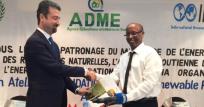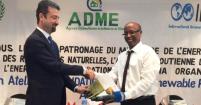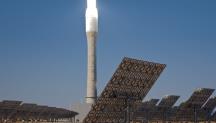

By 2020, Djibouti Can Meet 100% of Energy Demand Through Renewables
Newsletter
This month, Djibouti became the first country in East Africa to conduct an evaluation of its renewable energy potential with the assistance of IRENA. During a workshop held on 17-18 May, IRENA staff presented the findings of the Djibouti Renewables Readiness Assessment, which found that developing Djibouti’s renewable energy resources will allow the country to reach its goal of sourcing 100 per cent of its energy from renewables by 2020. The transition would be sourced mainly from geothermal, wind, and solar resources, as well as strengthening the existing interconnection with the Ethiopian grid, which currently delivers 65 per cent of Djibouti’s electricity needs.
The Djibouti RRA recommends the country undertake a number of concrete measures to support the implementation of renewable energy including a long-term energy plan; strengthening the legislative and regulatory framework; developing a clear rural electrification strategy; and providing financial support for small- and medium- sized solar PV enterprises, amongst other recommendations.
The report highlights that the renewable energy sector employs more people on a megawatt-hour basis than the conventional energy sector and that off-grid renewable power can meet demand in unserved rural areas and replace existing diesel systems, reducing carbon emissions and improving air quality.
Roughly 55 per cent of the population of Djibouti does not currently have access to electricity. The country also remains heavily dependent on imported fossil fuels and power, which exposes it to fluctuating oil prices, blackouts and other service disruptions.
Djibouti is already taking action in developing more efficient and clean ways to generate electricity.
“We have proposed a law opening electricity generation to private-sector involvement and the law is currently under consideration with our parliament. In addition, the World Bank is investing in a 50 MW geothermal plant in Assal-Fialeh” – Ali Yacoub Mahamoud, Djibouti Minister of Energy and Natural Resources
The workshop opened on the very day that a Djibouti law was passed, providing a tax exemption for all renewable energy equipment, a promising step forward toward utilizing the country’s significant renewable energy resources. Renewables Readiness Assessments (RRAs) offer a holistic evaluation of conditions for renewable energy deployment in a country, and outline the actions necessary to further improve these conditions. Download the full assessment
